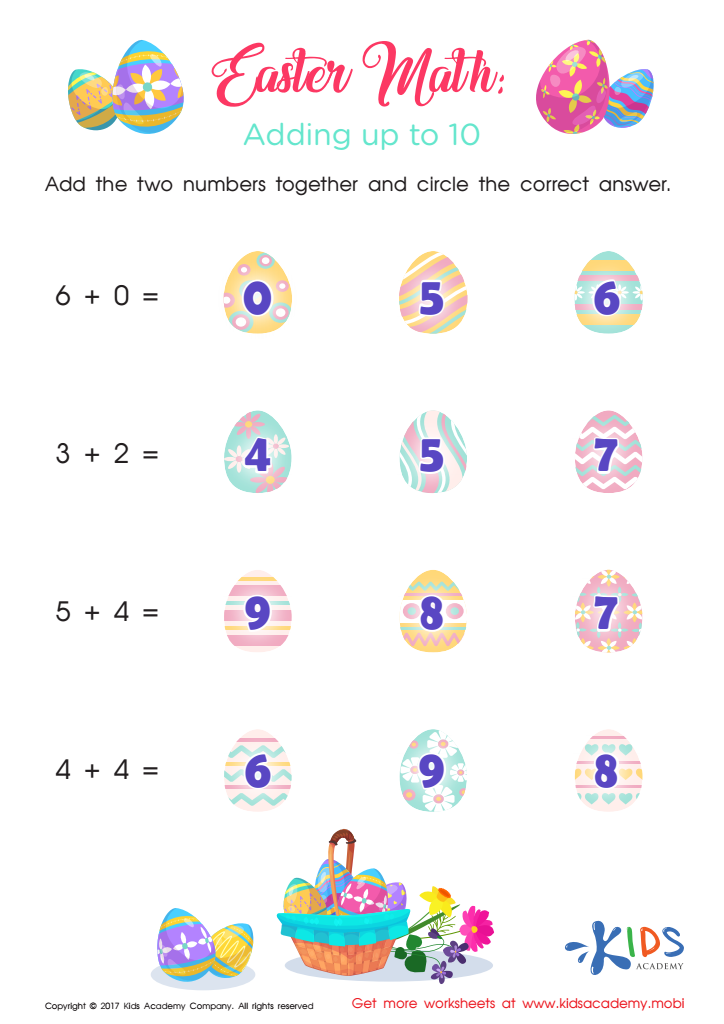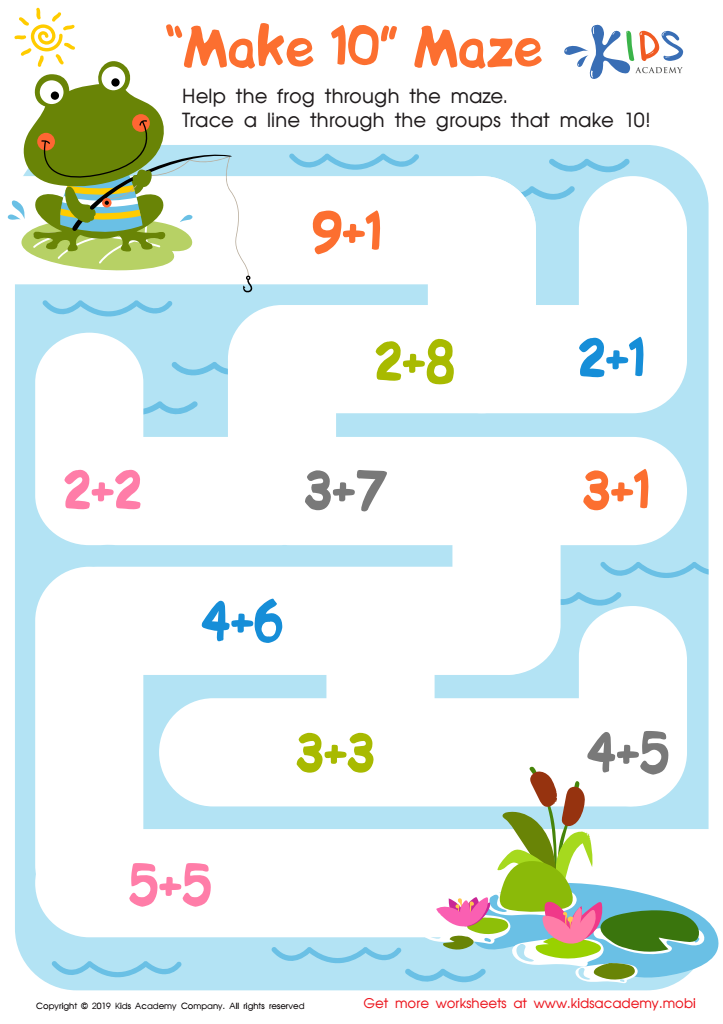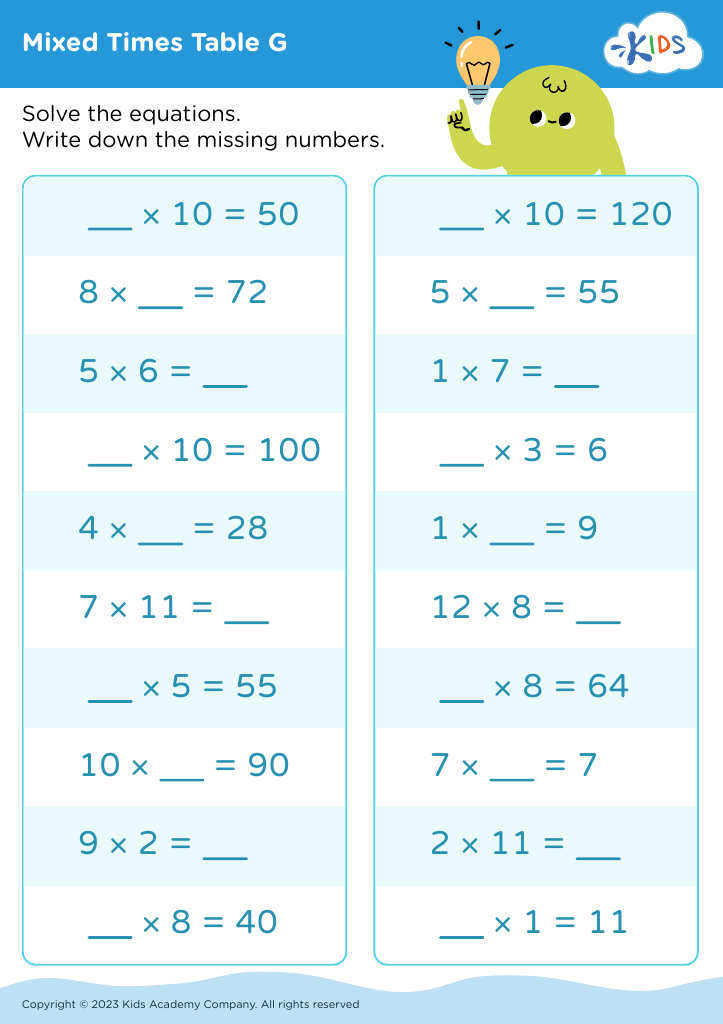Math fluency development Extra Challenge Math Worksheets for Ages 4-9
3 filtered results
-
From - To
Enhance your child's math fluency with our Extra Challenge Math Worksheets designed for ages 4-9! These engaging, interactive worksheets provide a fun and effective way to develop essential math skills, including addition, subtraction, and number recognition. Tailored for young learners, our materials offer varied levels of difficulty to keep kids motivated and challenged. Ideal for reinforcing concepts taught in school or supplementing home learning, these worksheets stimulate critical thinking and problem-solving abilities. Make math practice enjoyable and rewarding! Dive into our diverse collection of worksheets today and watch your child's confidence and aptitude in math flourish. Perfect for parents and educators!


Addition Up To 10 Worksheet


Make 10 Maze Worksheet
Math fluency development is crucial for children aged 4-9, as it lays a solid foundation for their future mathematical understanding and problem-solving skills. Parents and teachers should prioritize this area because early math skills are strongly linked to later academic success. When children achieve fluency in basic math concepts—such as addition, subtraction, and word problems—they gain confidence in their abilities. This confidence can dramatically impact their willingness to tackle more complex subjects later on.
Additionally, lessons that focus on math fluency through fun, engaging activities help nurture a child's critical thinking and analytical skills. Programs like Extra Challenge Math offer tailored resources that encourage creativity and exploration in mathematics, fostering an enjoyable learning environment.
By emphasizing fluency using interactive games and hands-on activities, children develop a love for math and learn to associate it with positive experiences. Furthermore, establishing a strong math foundation can enhance children’s executive function skills such as working memory and cognitive flexibility, aiding overall cognitive development.
Ultimately, investing in math fluency from an early age empowers children, equipping them with essential skills necessary for navigating everyday life and future academic endeavors. Parents and teachers play pivotal roles in nurturing these early, foundational experiences.
 Assign to My Students
Assign to My Students





















